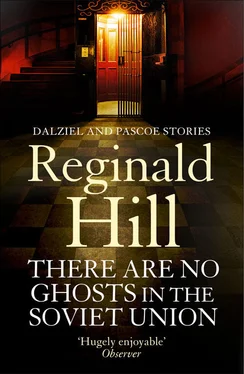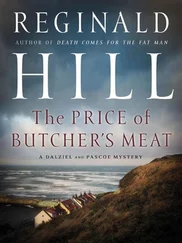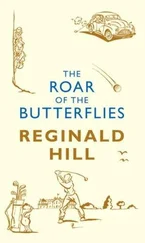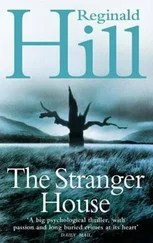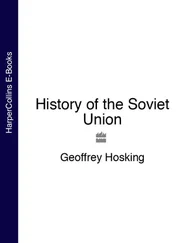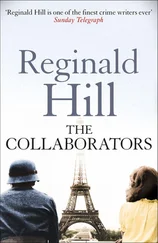His application to examine copies of the paper for July 1934 was greeted with the bored resentment which is the Muscovite’s conditioned response to almost any request for help or information, but at least he was not required to produce any authorization other than his MVD card.
Seated at a rough wooden table, he began his search.
His first discovery was that in 1934 the thirteenth of July had also fallen on a Friday.
He found the report he was looking for printed three days later. Probably in the impatient West it would have been in the very next edition, but wise Mother Russia always takes time to weigh carefully what her children may safely be told, what is best kept from them.
This was a small report, easily missed. It merely stated a man had been killed in an unfortunate accident at the May Day Centre on July 13th. For some reason the lift had jammed between the ninth and tenth floors, but the indicator had continued to function. Thinking the lift had arrived, the accident victim had opened the outer door on the seventh floor and stepped into the shaft before he realized his error. The lift had then started to function again and medical evidence was not clear whether the fall had killed him or whether the descending lift had crushed him to death in the basement.
Chislenko swallowed hard. But it was not just the ghastliness of the story which twisted his stomach. It was the man’s name.
He was a rising light in the Leningrad Party, a valued friend and associate of the famous Sergei Kirov.
His name was Fyodor Bunin.
Chislenko called for the man in charge of the archives.
‘Do you have a copy of the Encyclopædia of Historical Biography ?’ he asked.
The man looked as if he’d have liked to deny this, or at least to say that it was nothing to do with him if they’d got one or not. But something in Chislenko’s expression made him reply with only token surliness, ‘I expect so,’ and go and fetch it.
It was the latest edition, though there was nothing to show that there had been previous editions. Anyone who had a full set would be able to chart all the ebbs and flows of the great power struggles which had shaken the State since its inception nearly seventy years before. But as private ownership of the work was forbidden by edict, private owners were few and far between.
Chislenko thumbed through the bulky tome till he found Bunin . It was a sign of something, he didn’t know what, that Bunin the novelist and Nobel Prize Winner, who chose to live in Paris after the Revolution, actually merited a few lines. This contrasted with a page and a half on Boris Bunin, Head of the MVD, the Ministry of the Interior. His star was clearly in the ascendant, so much so that its light had spilled over to illuminate the brief life and minor eminence of his elder brother, Fyodor, whose promising career had been nipped off by a tragic accident.
According to the Encyclopædia , in the atmosphere of growing distrust in the early ’thirties between Stalin and his powerful henchmen, Sergei Kirov, Party Leader in Leningrad, Fyodor Bunin’s voice had been one of the few influences towards conciliation and compromise. Young though he was (only 25 at his death) he had the ear of both leaders and was widely regarded as one of tomorrow’s men. With his death any vague possibility of reconciliation between the opposing forces had disappeared, and a few months later Kirov’s assassination had signalled the beginning of the Great Terror.
Chislenko finished reading and closed the volume with a snap that made the archivist purse his lips in irritation. On his desk a telephone rang and the man glowered at Chislenko as if that too was his fault, but the Inspector did not notice.
Everything in this case seemed to lure him into greater peril. To be found pursuing a ghost as if he believed in it would do his career no good at all, but to offend the sensibility, as well as the sense, of his own MVD Minister by suggesting that this was the ghost of his own dearly beloved brother might well destroy it.
The best, the only thing to do was to tiptoe quietly away and never again mention the Leningrad accident.
‘Inspector!’
He realized the archivist was digging his finger into his shoulder as if he’d been trying to attract his attention for some while.
‘Yes?’
‘It is for you,’ said the archivist triumphantly.
He evidently meant the telephone.
Chislenko rose and went to it.
‘Chislenko,’ he said.
‘Kedin here. Look, you’d better get back, quick as you can. Serebrianikov’s in the Procurator’s office and he wants to see you.’
‘I’m on my way,’ said Chislenko. ‘Hold on though, Kedin …’
‘Yes?’
‘How did you know where to contact me?’
‘Serebrianikov said we would get you at the Pravda building. Why do you ask?’
Chislenko didn’t reply but gently replaced the receiver.
So much for all his precautions! He should have known from the start that men like Serebrianikov didn’t let their watchers go unwatched. What was perhaps more frightening was the arrogant casualness with which the man tweaked the thread to bring him back to hand.
He returned the papers and the Encyclopædia to the archivist’s desk and watched the man cross out his name. It felt like a symbolic act.
‘Chislenko,’ said the archivist. ‘Are you … ?’
‘No,’ said Chislenko. And went to meet his fate.
7
‘Well, here he is, the hero of the hour!’ proclaimed Serebrianikov. ‘Come in, sit down. You’ll take a drink with us? Procurator, a vodka for Lev. You won’t mind an old fogey like me calling you Lev, will you?’
Chislenko stood at the threshold, mouth agape, convinced he must be the victim of some hallucinatory nerve-gas. Serebrianikov, looking like the incarnation of old-world benevolence, clapped his hands together in glee and said, ‘I can see you’re too hard on your Inspectors, Kozlov. They’re not used to kind words in this office. Look at poor Lev here, not certain whether this is madness or mockery!’
Suddenly he became serious.
‘I’m a hard man myself, Lev, when the need arises. But I’ve always believed, merit should be acknowledged and rewarded. You’ve done well. We all think you’ve done well. The Minister is very impressed. He wants to see you personally. We’ll be off in a moment, but there’s time for that drink first.’
‘Comrade Bunin wants to see me?’ said Chislenko incredulously.
Kozlov thrust a large glassful of vodka into his hand, saying, ‘That’s right, er, Lev,’ (stumbling only slightly on the name). ‘He’s very pleased with the way we have handled this case.’
‘Yes, he is,’ said Serebrianikov a trifle sardonically. ‘You’ve done well too, Procurator, and your reward is still to come. But Lev’s the man of the moment. I give you Inspector Lev Chislenko!’
He raised his glass in salutation. Kozlov followed suit. Chislenko raised his in acknowledgement. Then in perfect unison the three men tossed the hot round spirit to the back of the throat, and because fifteen centilitres of straight vodka at that brief moment of initial epiglottal contact monopolizes all thought and feeling, for the first and probably the last time in their lives the trio felt and thought as one.
Then they were three again.
‘And now,’ said the old man, ‘we must not keep the Minister waiting.’
Chislenko had imagined he would be escorted to the Minister’s official chambers in the highest reaches of Petrovka, where his own minor rank did not permit him to penetrate. Instead, they went down to the street and climbed into an oldish but still luxurious Mercedes with a plain-clothes chauffeur.
Читать дальше
